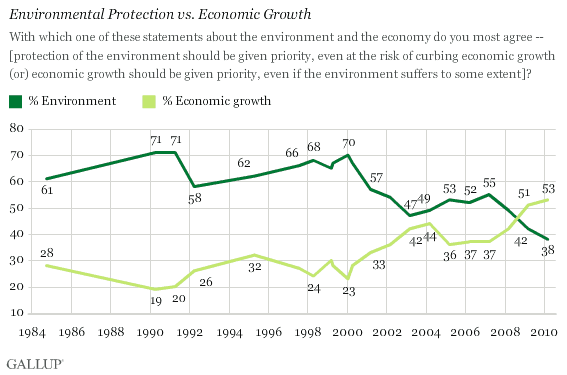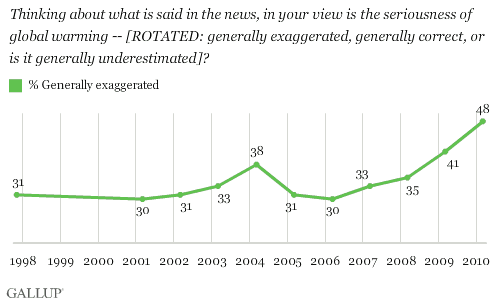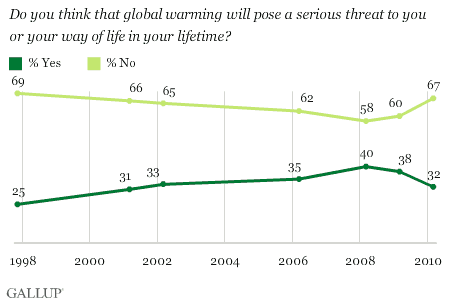Leading global scientists have been exonerated of blame in the “climategate” controversy, although this won’t stop right-wing and corporate-funded pundits from attacking the science of global warming. The British government recently released its first investigation on the activities of East Anglia University’s Climate Research Unit, finding no evidence that its scientists manipulated data or distorted the peer review process in order to exaggerate evidence or offer fraudulent findings that global warming is occurring and that humanity shares major responsibility. As the British House of Commons’ Science and Technology Committee reported, “the scientific reputation of Professor [Phil] Jones [one of the major scientists accused of manipulating data] and [EAU’s] CRU [Climate Research Unit] remains intact.” Controversy regarding the EUA “scandal” goes back to November 2009, when more than 1,000 emails were stolen from the CRU and circulated to right-wing activists in the U.S. and abroad in an effort to discredit the science of global warming. The notion that scientists in Britain or the United States are leading some sort of secret conspiracy involving individual researchers, the peer review process, and scientific academic journals is clearly debunked in this report.
The British government’s assessment mirrors that of Pennsylvania State University, which reviewed the work of Michael Mann, a leading global climate scientists affiliated with that institution. Mann was linked to “climategate” through his correspondence with EAU climate scientists, allegedly demonstrating his complicity in fudging evidence of global warming. Penn State released its own report in February, which cleared Mann of all charges that he manipulated or hid data that refuted global warming, attempted to hide or destroy emails with EAU colleagues, unethically dealt with confidential information, or that any of his actions “seriously deviated from accepted practices” driving professional scientific research. Penn States’ review specifically addressed the most controversial claim against Mann and the EAU: that they had employed a statistical “trick” to “hide” declines in global temperature (think the “global cooling” theory, as pushed by conservative pundits). As Penn State concluded:
While a perception has been created in the weeks after the CRU emails were made public that Dr. Mann has engaged in the suppression or falsification of data, there is no credible evidence that he ever did so, and certainly not while at Penn State. In fact to the contrary, in instances that have been focused upon by some as indicating falsification of data, for example in the use of a “trick” to manipulate the data, this is explained as a discussion among Dr. Jones [of EAU] and others including Dr. Mann about how best to put together a graph for a World Meteorological Organization report. They were not falsifying data; they were trying to construct an understandable graph for those who were not experts in the field. The so-called “trick” was nothing more than a statistical method used to bring two or more different kinds of data sets together in a legitimate fashion by a technique that has been reviewed by a broad array of peers in the field.
One of the most important questions to come from “climategate” is why we continue to tolerate propagandistic corporate media that perpetrate paranoid misinformation and lies. I’ve documented the ways in which the mass media — involving both right-wing and center-left elements — attempt to construct an artificial “debate” about whether global warming is occurring (see “Manufactured Dissent,” March 21, 2010, and “A Culture of Denial,” November 20, 2009). We need to move away from the notion that there is some secret scandal involving scientists and global warming, and focus on the reality that a scandal does exist, but one that is driven by for-profit media that contribute to growing public ignorance. We need to start talking about a mediagate, rather than a “climategate” or any other “gate” driven by paranoid right-wing conspiracy theorists.
Much of my intellectual career as of late is devoted to demonstrating how increased consumption of news is positively associated with growing political ignorance and the ascendancy of right-wing views among the news-following public. In the case of global warming, increased media consumption is associated with opposition to legal initiatives designed to combat climate change, and increasingly ignorant beliefs about scientific research covering global warming.
  
|
The most recent public opinion figures from last month are startling. According to Gallup, just 38 percent of Americans feel that the environment “should be given priority” over economic growth — a disturbing conclusion since it assumes that economies can properly function without a healthy environment. Furthermore, de-prioritization of the environment has grown since 2007, when 55 percent of Americans said that the environment “should be given priority” over economic growth. More food for thought: as of March 2010, Gallup finds that 48 percent think the “seriousness of global warming” is “exaggerated (an increase of 18 percent since 2006); 67 percent think that global warming will not “pose a serious threat” to the public in their lifetime (an increase of nearly ten percent since 2008).
Public assessments that the effects of global warming will not be felt in our lifetime are deeply problematic for those committed to preventing human extinction. In the United States alone, officials and scientists warn of the dangers of California’s water crisis and its relationship to global warming. Lester Snow, California’s Department of Water Resources Director, worries that “climate change is bringing us higher highs and lower lows in terms of water supplies.” Such concern is apt in light of cities like Los Angeles, which suffered its driest year from 2006 to 2007, with just three inches of rain, preceded by a 2004-2005 rainfall of 37 inches. California Governor Arnold Schwarzenegger recently declared an emergency situation in light of the state’s drought problems. Schwarzenegger mandated a rationing of water, which was accompanied by state court efforts to limit water extracted from rivers in order to preserve endangered ecosystems.
The Obama administration’s Energy Secretary Steven Chu — himself a scientist — warns that California may face a state of permanent drought by 2050, with the state no longer able to sustain agriculture and city life as we know it. This warning is reinforced by the U.S. Geological Survey and the journal Science. As Science reported in 2007, “the levels of aridity of the recent multiyear drought or the Dust Bowl and the 1950s droughts will become the new climatology of the American Southwest within a time frame of years to decades” if modern computer models and predictions are correct. California’s Department of Water Resources estimated in a 2009 survey that the state’s mountains were able to carry just 61 percent of the water volume of previous years. The Sierra Mountains — which provide two thirds of the state’s fresh water — are predicted to retain 25 to 40 percent less snow by 2050 in light of growing atmospheric CO2 concentrations and increasing global temperatures. The effects of global warming — then — will not be limited to poor second and third world countries, but will also be felt in the first world, and in our lifetime.
Progressives need to join together and engage in a battle to convince their friends, acquaintances, and family that simply paying attention to the mass media is no longer enough if one wants to be informed about vital issues. Increased consumption of corporate media exclusively — as I document on many issues — not only fails to educate the public on public policy matters but often actively increases ignorance. This is something that should enrage everyone on the left — and the American public more generally. We desperately need to find ways to expand the progressive, non-corporate press in this country. It’s time to stop simply highlighting the problem but to become part of the solution.
Anthony DiMaggio is the author of the newly released When Media Goes to War (Monthly Review Press, 2010) and Mass Media, Mass Propaganda (2008). He teaches U.S. and Global Politics at Illinois State University, and can be reached at: <adimagg@ilstu.edu>.
|
| Print
